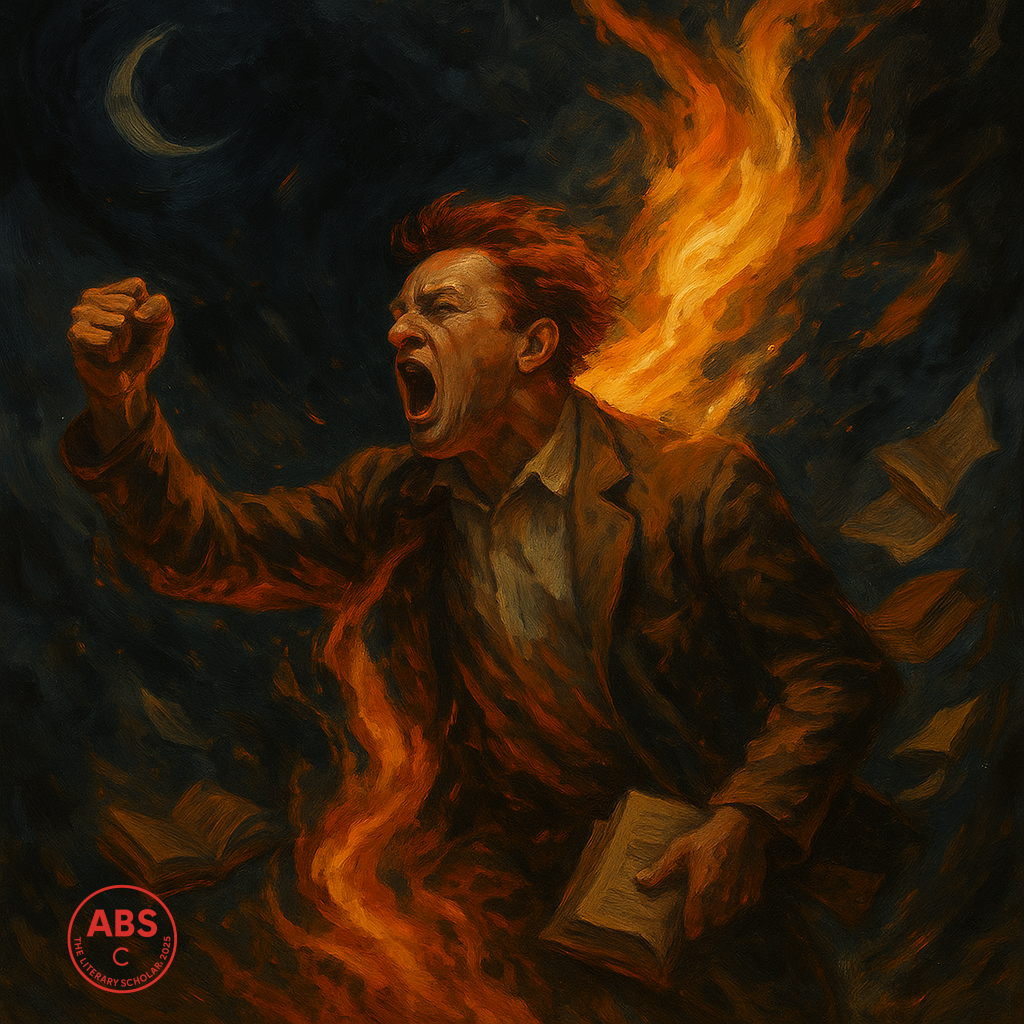Why “Going Gentle” Is for Lamps, Not Legends
ABS Believes:
Some poems whisper. This one punches.
Because going gently is fine for fairy lights—not for fire-hearted poets.
The Drama King of Doomsday Literature
Dylan Thomas didn’t write poems. He detonated them. He wasn’t content with soft sighs or tragic acceptance—he wanted fireworks, echoes, and a baritone battle cry at the edge of mortality. If poets were seasons, Thomas was autumn during a thunderstorm—with whiskey.
“Do Not Go Gentle Into That Good Night” is not a tribute. It’s a tantrum. A well-rhymed, six-stanza punch in the face to anything that dares call death peaceful. Thomas took a tightly structured French form—the villanelle—and used it like a megaphone. He didn’t go gentle into any literary tradition either. He stood there, middle finger up, howling into the void with elegance.
The poem is essentially a group intervention staged by one man—calling out the wise, the good, the wild, the grave, and even his father—not to walk quietly into oblivion but to rage like theatre kids on closing night. It’s emotional arson wrapped in meter.
The Style: Villanelle Meets Verbal Violence
Only Dylan Thomas could take a 19-line poem and make it feel like a two-act opera. Repetitions slam like battle drums. The rhythm never rests. The message is simple: Death is inevitable, but dignity is overrated. If you must go, go out like a scandal. Preferably while quoting yourself.
This isn’t a poem that wears a black armband. It wears war paint and sarcasm. It thinks eulogies are boring unless they rhyme and scream.
ABS folds the scroll with a snarl, not a sigh, leaving bootprints

Signed,
ABS
The Literary Scholar
Where rhyme rages, and the Reaper gets roasted
Where poets don’t rest in peace—they rise in punctuation
Share this post / Spread the witty word / Let the echo wander / Bookmark the brilliance
